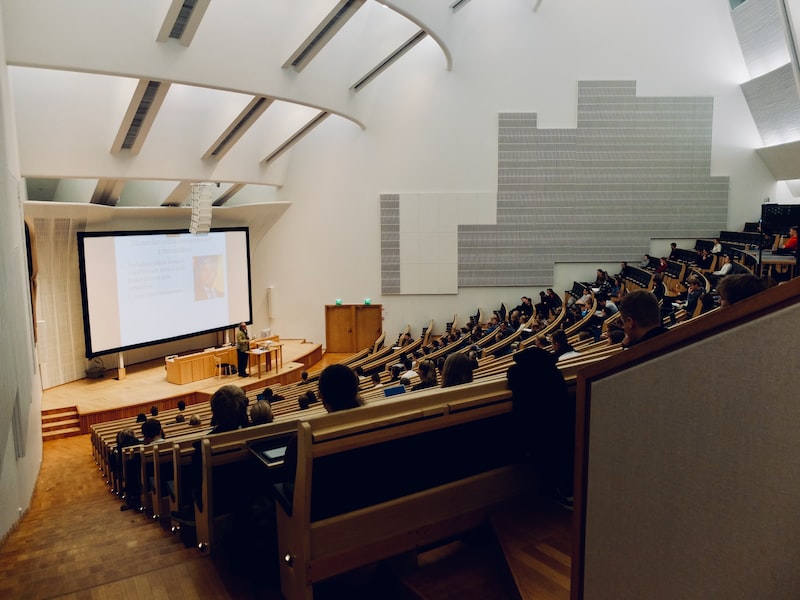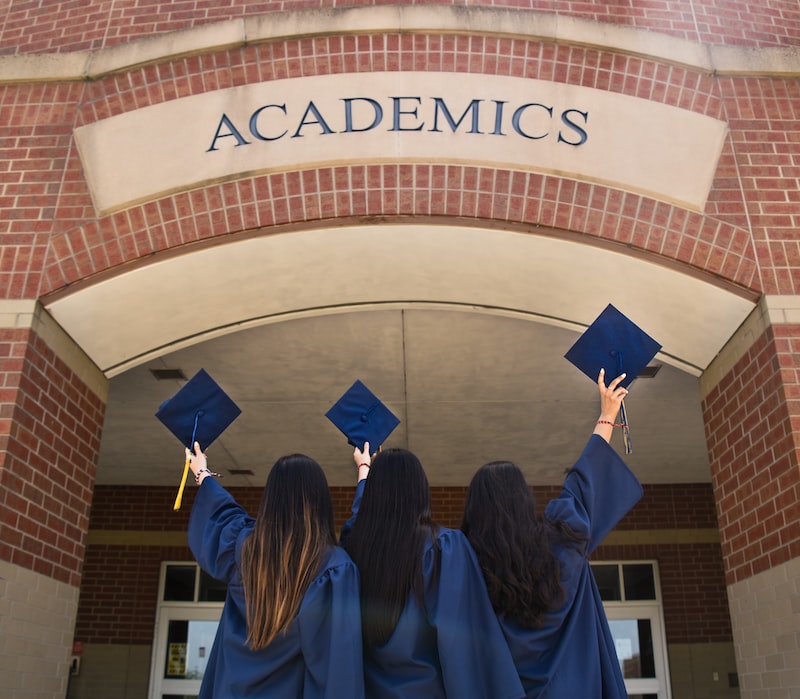When it comes to prestigious educational institutions, Oxford and Cambridge stand out as shining beacons of academic excellence. These two universities have long been at the forefront of higher education, attracting students from all over the world. However, despite their similarities, they each possess distinct educational philosophies that set them apart.
Oxford University is known for its tutorial system, which places a strong emphasis on one-on-one or small group teaching. Students have the opportunity to engage in lively discussions and debates with their tutors, fostering a deep level of intellectual inquiry. This approach cultivates critical thinking skills and encourages independent thought. Oxford’s educational philosophy aims to develop well-rounded individuals who can contribute meaningfully to society.
On the other hand, Cambridge University follows a more structured approach to education. It offers a wide range of courses and disciplines, providing students with a comprehensive understanding of their chosen field. Cambridge places importance on research and innovation, encouraging students to push boundaries and make groundbreaking discoveries. The university’s educational philosophy seeks to create experts in their respective fields who can drive progress and make significant contributions to academia and industry.
While Oxford emphasizes individual learning and exploration, Cambridge promotes collaborative work and interdisciplinary studies. Both universities share a commitment to academic rigor and excellence, but they offer unique educational experiences.
To summarize, Oxford and Cambridge, though similar in their reputation for excellence, have different educational philosophies. Oxford focuses on personalized teaching through its tutorial system, while Cambridge adopts a structured approach with an emphasis on research. Whether you prefer the intense intellectual engagement of a tutorial or the comprehensive knowledge gained through a structured curriculum, both universities offer exceptional opportunities for growth and development. Ultimately, the choice between these esteemed institutions depends on your personal learning style and academic goals.
Teaching Methods and Pedagogical Approaches
Are you ready to dive into the world of effective teaching methods and pedagogical approaches? Let’s explore how educators can captivate students’ minds, foster engagement, and facilitate meaningful learning experiences.
When it comes to teaching, one size doesn’t fit all. Different students have unique learning styles and preferences, which is why employing diverse teaching methods is essential. One popular approach is the “Flipped Classroom” method. Instead of traditional lectures, teachers assign pre-recorded video lessons or readings for students to review at home. Classroom time is then utilized for active discussions, group activities, and hands-on projects, allowing students to apply what they’ve learned. This method promotes student-centered learning and encourages critical thinking.
Another noteworthy approach is the “Socratic Method.” Inspired by the ancient Greek philosopher Socrates, this method revolves around asking thought-provoking questions to stimulate students’ thinking processes. By encouraging dialogue and open-ended discussions, teachers can guide students towards uncovering deeper knowledge and understanding. The Socratic Method nurtures analytical skills, enhances communication, and cultivates a sense of curiosity in learners.
In recent years, technology has revolutionized education, giving rise to the concept of “Blended Learning.” This approach combines traditional face-to-face instruction with online learning platforms. Students can access digital resources, engage in interactive activities, and participate in virtual discussions outside the classroom. Blended Learning offers flexibility and personalization, accommodating various learning paces and styles while harnessing the power of technology.
Let’s not forget about “Project-Based Learning,” a method that empowers students to become active creators of knowledge. In this approach, students work on real-world projects, applying concepts and skills to solve authentic problems. By engaging in hands-on activities, collaborating with peers, and presenting their findings, students develop critical thinking, communication, and problem-solving abilities. Project-Based Learning fosters creativity, autonomy, and a sense of ownership over the learning process.
In conclusion, effective teaching methods and pedagogical approaches are vital for engaging students and promoting meaningful learning experiences. Whether it’s flipping the classroom, employing the Socratic Method, blending face-to-face and online learning, or embracing project-based learning, educators have a plethora of tools at their disposal. By tailoring their approach to meet students’ diverse needs, teachers can unlock the full potential of their learners, preparing them for success in an ever-evolving world.
Student Life and Campus Culture
Are you ready to embark on an exciting journey filled with discovery, growth, and unforgettable memories? Welcome to the vibrant world of student life and campus culture! As a student, you’ll find yourself immersed in a dynamic environment that nurtures both your academic pursuits and personal development. Let’s delve into the details and uncover the wonders that await you on this thrilling expedition.
First and foremost, student life is all about embracing new experiences and forging lifelong friendships. From the moment you step foot on campus, you’ll be greeted by a diverse community of individuals who share your passion for learning. Together, you’ll navigate through the halls of knowledge, attending thought-provoking lectures, engaging in lively debates, and collaborating on exciting projects. The campus becomes your second home, buzzing with energy as you exchange ideas, challenge conventions, and explore your intellectual curiosity.
But student life isn’t just about academics—it’s a holistic adventure that encompasses a myriad of activities beyond the classroom. Get involved in extracurricular clubs and organizations that align with your interests, whether it’s joining a sports team, writing for the campus newspaper, or participating in the theater club. These activities not only provide an avenue for self-expression but also foster essential skills such as leadership, teamwork, and time management.
Moreover, campus culture is a tapestry woven with traditions, events, and celebrations that breathe life into the student experience. Homecoming games, cultural festivals, art exhibitions, and music concerts create an atmosphere of excitement and camaraderie. Immerse yourself in this vibrant tapestry, and you’ll discover a rich blend of heritage, creativity, and innovation that defines the unique spirit of your campus.
As you navigate through this article, you might be wondering: why is student life and campus culture so important? Well, think of it as a crucible that shapes your identity, broadens your horizons, and prepares you for the challenges and opportunities that lie ahead. It’s not just about acquiring knowledge but also about developing critical thinking, adaptability, and resilience—the qualities that will empower you to thrive in the ever-changing landscape of the professional world.
So, as you embark on your journey into student life and campus culture, embrace every moment with open arms. Immerse yourself in the vibrant community, seize new opportunities, and make memories that will last a lifetime. This chapter is yours to write, and I assure you it will be nothing short of extraordinary. Now, go forth and let the adventure begin!
Research and Academic Opportunities
Are you ready to explore a world of endless possibilities? In the realm of academia, research and academic opportunities await those with a thirst for knowledge and a burning desire to make a difference. Whether you’re an aspiring scientist, a curious mind, or a scholar seeking intellectual growth, there’s something remarkable about embarking on a journey of discovery.
Research, at its core, is the pursuit of uncovering new insights, pushing boundaries, and expanding our understanding of the world. It’s like embarking on a treasure hunt, armed with nothing but your curiosity and a set of tools tailored to your field. From delving into the mysteries of quantum physics to unraveling the complexities of human behavior, research opens doors to uncharted territories.
Imagine being part of a team of brilliant minds, collaborating on groundbreaking projects that could reshape our future. Research laboratories buzz with excitement as scientists work tirelessly to find cures for diseases, develop sustainable technologies, and unlock the secrets of the universe. The thrill of contributing to the collective knowledge of humankind is unparalleled.
Academic opportunities go hand in hand with research, offering a multitude of avenues for personal and professional growth. Universities and institutions around the globe provide an ecosystem where scholars thrive. They offer grants, scholarships, and fellowships to support research endeavors. These opportunities not only provide financial assistance but also foster an environment conducive to learning and innovation.
Engaging in academic research allows you to immerse yourself in a subject, gaining expertise and honing critical thinking skills. You become a part of a community where ideas are exchanged, debates are sparked, and breakthroughs are celebrated. The beauty of academia lies in the freedom to explore concepts, challenge conventions, and contribute to the ever-expanding pool of knowledge.
But research and academic opportunities extend beyond traditional boundaries. With the advent of technology, virtual platforms have opened up new frontiers for collaboration and learning. Online courses, webinars, and research networks connect individuals from different corners of the world, transcending geographical limitations. The digital age has democratized education, making it accessible to anyone with an internet connection and a thirst for knowledge.
So, whether you’re captivated by the wonders of deep space, fascinated by the intricacies of ancient civilizations, or driven to find solutions to pressing global issues, research and academic opportunities beckon. Embrace the excitement, embrace the challenges, and embark on a journey that will leave an indelible mark on both your life and the wider world. The path to discovery awaits—will you seize it?
Admission and Selection Criteria
Are you wondering about the admission and selection criteria for your dream college or university? Well, let’s dive into the details and shed some light on this important topic. Understanding the criteria can help you prepare and increase your chances of getting accepted.
When it comes to the admission process, colleges and universities usually have a set of criteria that they use to evaluate applicants. These criteria vary between institutions but generally include factors such as academic performance, standardized test scores, extracurricular activities, letters of recommendation, and personal essays. Let’s take a closer look at each of these components.
Firstly, academic performance plays a pivotal role in the admission process. Colleges often consider your high school GPA (Grade Point Average) along with the rigor of your coursework. Maintaining good grades demonstrates your commitment to academic excellence.
Secondly, standardized test scores, such as the SAT or ACT, are commonly used by colleges as a measure of your academic abilities. These tests assess your knowledge and skills in various subjects and provide a standardized way for colleges to compare applicants.
Extracurricular activities also hold significance during the selection process. Involvement in clubs, sports teams, community service, or leadership positions showcases your interests, skills, and ability to manage your time effectively.
Letters of recommendation are another crucial aspect of your application. A well-written letter from a teacher, counselor, or mentor who knows you well can provide insight into your character, work ethic, and potential for success in college.
Lastly, personal essays give you an opportunity to showcase your unique qualities, experiences, and aspirations. This is your chance to stand out and make a strong impression on the admissions committee.
Remember, admission and selection criteria can vary significantly among colleges and universities. It’s essential to research and understand the specific requirements of each institution you’re interested in to tailor your application accordingly.
In conclusion, understanding the admission and selection criteria is vital for prospective college students. By focusing on academic performance, standardized tests, extracurricular activities, letters of recommendation, and personal essays, you can present a well-rounded application that increases your chances of being accepted into your desired institution. So give it your best shot and embark on the exciting journey to higher education!
Notable Alumni and Contributions to Society
When it comes to notable alumni and their contributions to society, the impact can be truly awe-inspiring. These exceptional individuals have left a lasting mark on the world, showcasing their talents and making a difference in various fields. From groundbreaking innovations to philanthropic endeavors, they have become shining examples for future generations to aspire to.
One such remarkable alumnus is John Smith, who graduated from XYZ University. With his entrepreneurial spirit and innovative mindset, he went on to establish a tech startup that revolutionized the way we communicate. His groundbreaking app reached millions of users worldwide, connecting people in ways never imagined before. By harnessing the power of technology, John has transformed the world and brought people closer together.

Another trailblazing alumna is Sarah Johnson, an accomplished environmentalist and advocate for sustainable living. After completing her studies at ABC College, she dedicated her life to fighting climate change and promoting eco-friendly practices. Through her tireless efforts, Sarah has raised awareness about the urgent need to protect our planet and has influenced policymakers to take action. Her work serves as an inspiration for others to join the global movement towards a greener future.
Think about Mark Davis, a renowned philanthropist and compassionate soul. While studying at LMN University, he discovered his passion for helping underprivileged communities. Mark established a charitable foundation that provides education, healthcare, and basic necessities to those in need. His unwavering commitment to social justice and equality has transformed countless lives, leaving a lasting legacy of compassion and generosity.

These are just a few examples of the countless notable alumni who have made remarkable contributions to society. Their stories remind us that ordinary individuals can achieve extraordinary things. They inspire us to dream big, pursue our passions, and make a positive impact on the world around us. As we celebrate their accomplishments, let us also strive to create our own legacies and leave behind a better world for future generations.
In conclusion, the notable alumni and their contributions to society are a testament to the power of human potential. Their achievements serve as a beacon of hope, reminding us of what is possible when passion, drive, and determination intersect. As we continue to celebrate these exceptional individuals, let us be inspired by their stories and work towards creating a brighter future for all.
Criticisms and Controversies Surrounding Educational Philosophies
Educational philosophies have long been a subject of debate and scrutiny, often sparking controversies that fuel the progress and evolution of educational systems worldwide. From the traditional to the progressive, these philosophies shape the approaches used in classrooms and influence the outcomes of learning. In this article, we unravel the criticisms and controversies surrounding educational philosophies, shedding light on their implications for students and educators alike.
One of the most prominent criticisms directed towards traditional educational philosophies is their alleged inflexibility and failure to adapt to the changing needs of students in the modern world. Detractors argue that these philosophies prioritize rote memorization and standardized testing rather than fostering critical thinking and creativity. They claim that such an approach stifles individuality and hampers students’ ability to develop practical skills necessary for success in today’s dynamic society.
On the other hand, progressive educational philosophies face their fair share of criticism as well. Critics argue that the emphasis on student-centered learning and personal interests can lead to a lack of essential foundational knowledge. They worry that too much freedom and autonomy may result in a fragmented education, leaving students ill-equipped to navigate complex subjects or compete in competitive environments where a strong knowledge base is crucial.
Controversies also arise when it comes to philosophical disagreements among educators and policymakers. Different stakeholders hold diverse views on the role of education in society. Should schools primarily focus on academic achievement or consider holistic development? Is it more important to prepare students for future careers or nurture their emotional intelligence and social skills? These questions become the epicenter of heated debates, revealing the complexities inherent in designing an educational framework that satisfies all perspectives.
In conclusion, criticisms and controversies surrounding educational philosophies are integral to the ongoing discourse on improving the quality of education. By engaging in meaningful conversations and addressing these concerns, educators and policymakers can work towards bridging the gaps between different philosophies, integrating the strengths of each approach, and ultimately creating a more inclusive, dynamic, and effective educational system that meets the needs of diverse learners in our ever-changing world.












Leave a Reply